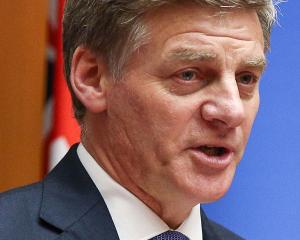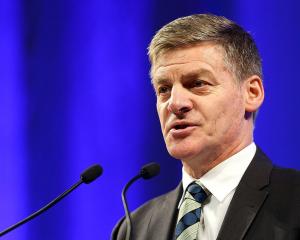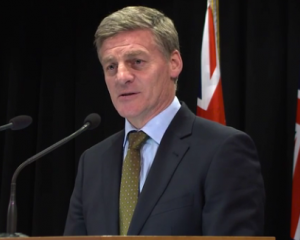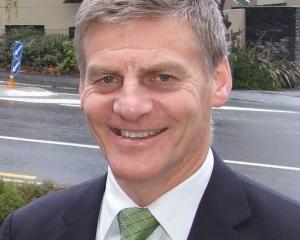The ultra-orthodox Budget was sold on Thursday by Bill English as the last word in fiscal rectitude, but it lacked for one rather necessary ingredient.
Both the Minister of Finance and the Prime Minister know exactly what that was, because they were questioned incessantly about it all week.
Although there was fat chance of it happening, the missing item was National announcing it is dropping its opposition to any review of current state-funded superannuation entitlements, in particular the raising of the age of eligibility from 65 to 67.
As was the case last year, the Budget instead just tinkered with KiwiSaver.
The new provisions requiring KiwiSaver fund managers to be more transparent in reporting their performance, returns fees and costs - and in a fashion which enables investors to make direct comparisons with other funds - will be universally applauded.
The postponement of the planned auto-enrolment of workers who are not KiwiSaver members is unfortunate.
The Minister of Finance argues the $100 million-plus annual cost is too high and "not possible without putting the surplus at risk".
And we couldn't have that, could we?
That decision only underlines the short-term vision of National when it comes to superannuation policy.
John Key claims New Zealand superannuation will remain affordable despite warnings from Treasury that trade-offs will have to be made regarding entitlements once the post-war "baby boom" generation hits retirement age.
Treasury is not alone in thinking that. Many people doubt the current scheme will survive in its current form.
But it might survive as a vital back-stop for those unable to save for their retirement if the bulk of workers can draw their retirement incomes from elsewhere.
It stands to reason that the more workers with a KiwiSaver scheme, the less the future pressure on the existing state scheme.
Mr Key promised to resign from Parliament if he lifted the age of eligibility or watered down the formula for the payment of the state pension.
He has shown no sign of reneging.
This week, he went as far as saying he would not ditch his pledge, even if the financial crisis in Europe required National take a hard look at some policies which have so far escaped going under the fiscal knife.
It is fundamental that politicians keep their word - party leaders even more so.
Equally, politicians are required to be flexible to changing circumstances.
And leaders are expected to lead.
Mr Key argues that, anyway, nothing needs to be done before 2020 - and cites Retirement Commissioner Diana Crossan as agreeing with him.
What Ms Crossan has actually said is that the retirement age needs to be lifted gradually from 2020. That requires a decision fairly soon, to give people the chance to adjust their savings.
Mr Key, however, has the luxury of being able to wave the problem away because he is unlikely to still be around when the numbers eligible for the pension really start to explode.
However, the first warning signs of what has yet to come are in the Budget.
The Treasury specifically notes the super Bill will rise from $8.8 billion in 2011 to $12.3 billion in 2016.
The numbers on New Zealand superannuation will reach nearly 680,000 by then - 20% above the current level.
Instead of ignoring the problem, Mr Key could lay the groundwork for changes at a time when the political cost of doing so is comparatively small.
Above all, he needs to personally manoeuvre himself on to the other side of the debate, or he will end up in a dwindling minority.
One option would be to set up multi-talks - as suggested by Labour leader David Shearer - to find a lasting consensus.
Mr Key would get some kudos for grasping reality.
While there would be some criticism for breaking his word, his acting in the national interest - rather than just just National's interest - would be a strong defence.
National, however, would be unwilling to hand Mr Shearer anything which might be claimed by Labour as a victory.
Mr Key's fear would be that Labour would make National eat humble pie and try to take control of the talks.
Labour, however, would be under the same pressure from the public not to exploit a multi-party forum for political advantage.
What we have seen of Mr Shearer so far suggests he is not the kind of politician who would use such an exercise as a bandwagon for pillorying his opponents.
He prefers to work behind the scenes and negotiate lasting solutions to sticky problems.
That is what he tried to do during the prolonged industrial dispute at the Ports of Auckland and he joined the picketing workers only after he failed to make progress with management and the union.
For its part, National could enter the talks reserving its current position.
If it is truly cynical, National could use cross-Parliament talks to bury the issue.
Such forums do not have a good track record and often collapse amid acrimony and a shouting match as to who is to blame.
Another avenue for Key to start shifting his stance is a provision in National's confidence and supply agreement with Peter Dunne.
The United Future MP secured National's agreement to consider a more flexible approach to retirement which would enable people to choose to get super at age 60 to 65 at a lower rate than the regular rate, or choose not to accept the pension until they were older and, consequently, receive higher payments.
Mr Key seems amenable to the idea because it would be voluntary and, more crucially, would not be taking away anyone's existing entitlements.
Whatever, Mr Key needs to shift his stance, even if slowly and by stages.
Even if state super is affordable at current levels into the future, the public perception is that it is not. Mr Key has to deal with the perception.
Voters will want to know where they stand and what they will get.
It would be some irony were National to achieve its cherished promise of a Budget surplus in three years' time, only to find itself on the losing side of a much bigger and far more damaging argument about superannuation.
John Armstrong is The New Zealand Herald political correspondent.










